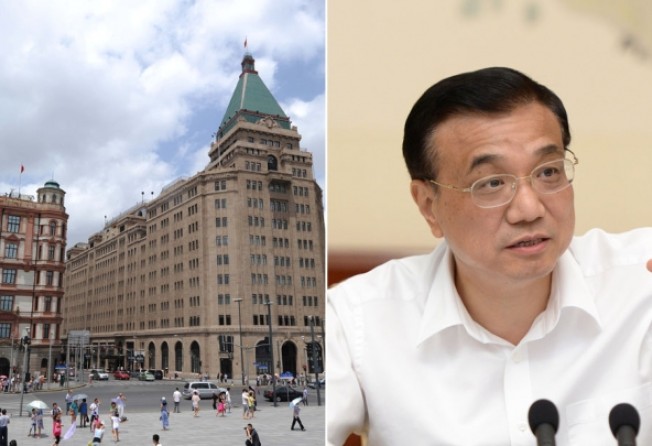Shanghai is shop window showcase for Likonomics
The largest city in China is back in the spotlight after it was picked by the premier to demonstrate the effectiveness of his economic plans

Shanghai, once dubbed "the Paris of the Orient", has had its share of ups and downs. In recent years, its status, within China and beyond, has been unsteady, in particular after a former top official in the city was jailed.
When Shanghai's former chief Chen Liangyu, a strong ally of former president Jiang Zemin, was sacked in 2006 and jailed in 2008 on corruption charges, most political analysts and businessmen felt the city would be stuck in a rut for a while as a result of a political tussle between Beijing and Shanghai.
The 2010 World Expo, hosted by Shanghai, gave the city a shot in the arm, allowing it to welcome foreign travellers and investors. But the window of opportunity to showcase the city was too short for any significant changes in its economic and social development.
Well, some people might argue that Shanghai did get more urban rail routes and hotels because of the World Expo. But how has Shanghai done since the expo? It is back in the rut.
It was not until the beginning of this month, when the State Council, led by Premier Li Keqiang, announced the central government would create the mainland's first free-trade zone in Shanghai, that the city sprang back into the global spotlight.
Some political analysts tried to play down the importance of the free-trade zone, arguing that Beijing had already approved too many "special economic zones", including one in Tianjin, hometown of former premier Wen Jiabao.
But this time, it's different.
The free-trade zone in Shanghai is part of Li's economic plan, more popularly known as "Likonomics", which, according to economists at Barclays, comprises three main parts: no stimulus, deleveraging and structural reforms.
In other words, Li has made up his mind to pick Shanghai as the first showcase of how Likonomics can work to save China from the risks of a hard landing, and the structural reforms may indicate a wider opening up to foreign investments in sectors previously off-limits.
This time, Beijing may not want to use its own money to launch a new round of economic stimulus on the mainland but it doesn't hurt if it can attract foreign money to stimulate the economy. The government still wants to maintain the country's annual growth rate at or above 7.5 per cent this year.
That is the official target. If Li misses it, he would be the first premier to do so, causing him and his boss President Xi Jinping big embarrassment and attracting unnecessary political pressure. That may also explain why Shanghai is so important for Li, Xi and the central government at the moment.
Talking of Shanghai, my local intelligence tells me that the city's five-star hotels are in a hard place: they consider themselves lucky if they can keep the daily occupancy rate at more than 50 per cent, against nearly 100 per cent during the year of the World Expo.
If the free-trade zone plan goes according to plan, hotels in Shanghai are in for better days.
Hotel occupancy rates are a good indicator of foreign investment sentiment. The day you find it difficult to book a hotel in Shanghai again, you know the city is back in business.
George Chen is the Post's financial services editor. Mr. Shangkong appears every Monday in the print version of the SCMP. Like it? Visit facebook.com/mrshangkong